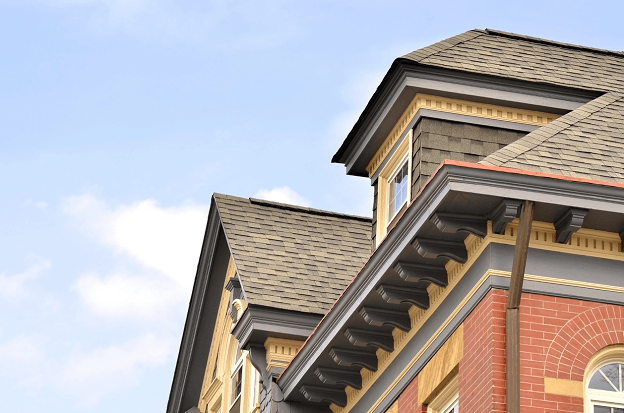Restoring a historic home is both a privilege and a responsibility. These homes are not just structures, they are pieces of history, telling stories through their architecture and design. One of the most important aspects to consider during restoration is the roof. The right roofing material will not only protect the home but also preserve its historical authenticity and enhance its visual appeal. Below are some of the best roofing materials that honor the legacy of historic homes while ensuring durability and longevity.

Slate Roofing
Slate is one of the most iconic historical roofing materials, valued for its durability, natural beauty, and long lifespan. It has been used for centuries on prestigious buildings and homes. Slate’s resistance to harsh weather and low maintenance needs make it an ideal choice. Its variations in color and texture allow it to complement a range of architectural styles, from Victorian to Colonial. Although its upfront cost is higher, a slate roof can last over a century, making it a cost-effective investment in the long run.
Wood Shingle or Shake Roofing
Wood shingles or shakes bring warmth and character to historic homes. Common wood types include cedar, redwood, and oak, chosen based on regional availability and period authenticity. While wood roofing requires regular maintenance such as staining or sealing to prevent rot and decay, proper care can greatly enhance the home’s historical charm.
Clay or Terracotta Tile Roofing
For homes with Mediterranean, Spanish, or Mission Revival architecture, clay or terracotta tiles are an excellent match. They are fire-resistant, highly durable, and available in colors that perfectly suit these styles. However, because clay tiles are heavy, it is essential to ensure the home’s structure can support their weight.
Metal Roofing
Metal roofing, including copper, zinc, or tin, provides a durable and distinctive option for historic homes. It works especially well for buildings with industrial or utilitarian origins. Metals like copper naturally develop a patina over time, adding an aged, historic look that blends beautifully with older architecture.
Alternative and Synthetic Materials
In some cases, replicating the original roofing material may not be practical due to cost, weight, or availability. Modern synthetic materials mimic the look of slate, wood, or clay while offering enhanced weather resistance and reduced maintenance. For example, synthetic slate provides the aesthetic appeal of natural slate at a lower cost and weight, making it a practical choice for many restoration projects.
Choose the Right Professional
Selecting the right material is only part of the process. Hiring an experienced roofing contractor who specializes in historic restorations is equally important. A qualified professional can recommend materials and installation techniques that maintain the home’s architectural integrity while ensuring it meets modern protection and energy efficiency standards.
Conclusion
Restoring a historic home’s roof requires a balance between preservation and performance. Whether you choose slate, wood, clay, metal, or modern synthetic materials, the right choice will protect your investment while honoring its heritage.
If you are restoring a historic home in Omaha, NE, Done Right Home Improvements O has the expertise you need. We specialize in roofing solutions that combine historical authenticity with modern durability. Call us today at 4027143104 or fill out our online form to schedule a consultation.

